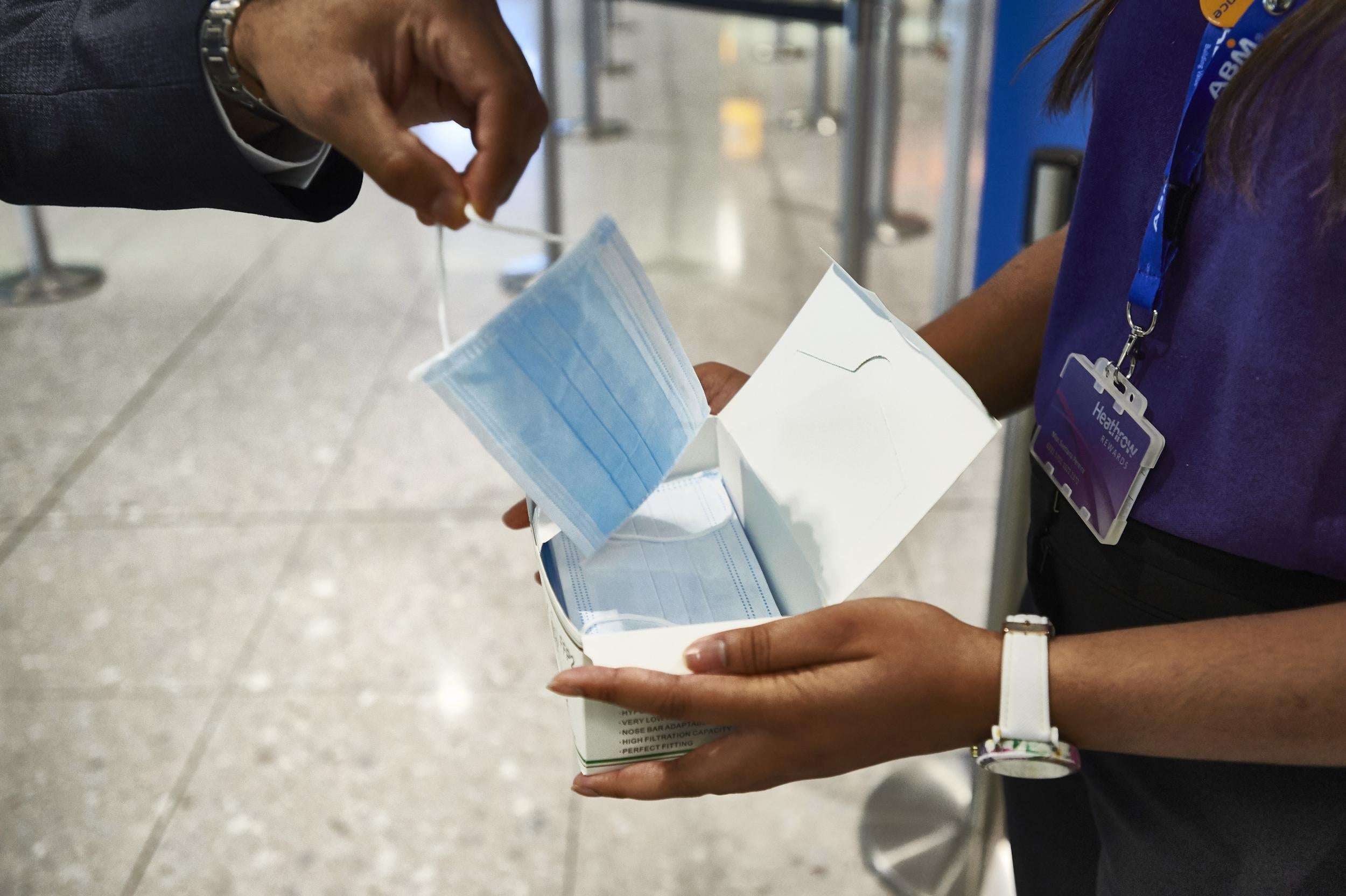Test, trace and stay put: the possible pitfalls of the coronavirus tracking system for travellers
Exclusive: airlines, package holiday companies and Eurostar are offering flexibility

Under the NHS test and trace programme, the rules are clear. Anyone developing symptoms of Covid-19 (high temperature; a new, continuous cough; loss or change to the sense of smell or taste) must immediately self-isolate with other members of their household and order a test to find out if they have coronavirus.
If that test is positive, they must inform the NHS test and trace service (or its equivalents in Wales, Scotland and Northern Ireland) and share information promptly about recent contacts.
Contacts are defined as anyone who lives in the same household as an infected person, has been within one metre of them, or has been within two metres for at least 15 minutes.
The government says: “You must self-isolate if the NHS test and trace service advises you to do so.”
This clearly has implications for people with travel plans. These are the key questions and answers.
I have been told to self-isolate by the NHS test and trace service. Is that a legal instruction?
No, but it would be dangerous and irresponsible to ignore the request. The health secretary, Matt Hancock, said: “This will be voluntary at first, because we trust everyone to do the right thing. But we can quickly make it mandatory if that’s what it takes.”
I have a booking for a UK holiday which, lockdown permitting, I’d like to take. What happens if I’m told to self-isolate?
You should obey the request, and contact the travel provider.
The Competition and Markets Authority (CMA) says you should probably get your money back: “For most consumer contracts, the CMA would expect a consumer to be offered a full refund where a consumer cancels, or is prevented from receiving any services, because government public health measures mean they are not allowed to use the services.”
Given the extreme difficulties caused to domestic travel providers by the coronavirus pandemic, consider other possibilities – such as non-contact friends taking over the booking, or requesting a postponement.
For recently agreed bookings, it may be that the travel provider has a term in the contract saying something like “If government action prevents you from making use of the booking, you can postpone it but not cancel for a full refund.” That would remove your general right for your money back.
I have an overseas holiday booked. What if I get the call the day before I am due to travel?
You should respect the self-isolation request and certainly not travel.
Britain’s biggest travel firm, Tui, says: “This situation would fall into our exceptions policy, which we already have for vulnerable people that had to self-isolate.
“In the first instance we ask customers to check with their insurance.
“If they’re unable to help we would ask to see an email from the government advising them to self-isolate. Customers will then be able to amend for free to another holiday on sale.
“If new holiday is more expensive they would pay difference and if cheaper would have a refund.”
What do the airlines say?
Virgin Atlantic already has a generous policy in its existing terms and conditions, saying: “If you are unable to travel due to your illness or the illness of a travel companion or member of your immediate family, you must contact us as soon as possible with evidence of this event.” Once you do so, you can re-book on another flight or obtain “a full refund if you are unable to travel during the period of validity of your ticket”.
The options the airline provides go well beyond the NHS test and trace situation.
A spokesperson said: “We have in place our flexible booking policies which provide flexibility to all customers, including those who decide not to travel due to restrictions such as the 14-day quarantine rules but would still like to rebook for a later date, up until 30 September 2022.”
The Independent is waiting for responses from British Airways, easyJet and Jet2.
How about Eurostar trains?
A spokesperson for the international rail service said: “Any customers with bookings up to 1 August can exchange their ticket, or request an eVoucher which is valid for 12 months from the date of issue.
“Considering the booking window is then six months, it can be used for trips right up to the end of 2021.”
The 1 August date may well be extended as the coronavirus pandemic continues.

Is travel insurance relevant?
Possibly, if there are losses unrecoverable elsewhere. Malcolm Tarling of the Association of British Insurers said: “This may not be covered going forward if there are Covid-19 exclusions but I would expect insurers to pay out for when Covid-19 isn’t excluded.
“That would be for the limited number of policies on the market now without exclusions, and policies in force pre-Covid for holidays booked pre-Covid.”
Couldn’t unscrupulous people who actually want to cancel “invent” an NHS test and trace order?
Travel providers will understandably require proof, and anyone who made a false claimed would be committing fraud. Were subterfuge identified, the company is likely to withhold all the customer’s money. The firm could also notify the police.
Join our commenting forum
Join thought-provoking conversations, follow other Independent readers and see their replies
Comments
Bookmark popover
Removed from bookmarks